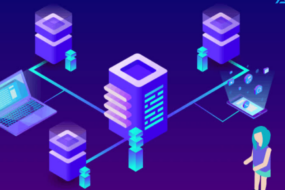
In today’s fast-paced digital landscape, where milliseconds can make or break user experiences, the demand for real-time speed and responsiveness has never been higher. Businesses across industries are constantly seeking innovative solutions to optimize their operations and deliver seamless services to their customers. This is where edge computing panels come into play, offering a cutting-edge solution to enhance speed and responsiveness in real-time applications.
Understanding Edge Computing Panels
Edge computing panels represent a paradigm shift in how data is processed and managed in distributed computing environments. Unlike traditional cloud computing models, where data is transmitted to centralized servers for processing, edge computing brings computation closer to the data source. This proximity reduces latency and enables faster processing, making it ideal for applications that require real-time responsiveness.
The Role of Control Panels
At the heart of edge computing panels are control panels, which serve as the centralized interface for managing and orchestrating computing resources at the edge. These panels provide administrators with granular control over edge nodes, allowing them to deploy applications, allocate resources, and monitor performance in real-time. By streamlining management tasks, control panels empower organizations to optimize their edge computing infrastructure for maximum efficiency and responsiveness.
Key Features and Benefits
Resource Allocation: Control panels enable organizations to allocate computing resources dynamically based on application requirements, ensuring optimal performance and responsiveness.
Application Deployment: With control panels, administrators can deploy and manage applications across edge nodes seamlessly, streamlining the deployment process and reducing time-to-market.
Performance Monitoring: Control panels provide real-time insights into edge node performance, allowing administrators to identify and address issues proactively to ensure uninterrupted service delivery.
Scalability: Control panels support seamless scalability, allowing organizations to add or remove edge nodes as needed to accommodate fluctuating workloads and scale their infrastructure dynamically.
Use Cases and Applications
Edge computing panels have a wide range of applications across various industries, where real-time speed and responsiveness are critical requirements. Some common use cases include:
IoT (Internet of Things): In IoT deployments, edge computing panels enable real-time data processing and analysis at the edge, facilitating faster response times and reducing dependence on centralized cloud infrastructure.
Industrial Automation: In industrial automation scenarios, edge computing panels empower organizations to deploy real-time monitoring and control applications at the edge, enhancing operational efficiency and responsiveness.
Content Delivery Networks (CDNs): In CDN environments, edge computing panels optimize content delivery by caching and processing content closer to end-users, reducing latency and improving user experiences.
Final Words
In conclusion, edge computing panels represent a game-changing technology that is revolutionizing real-time speed and responsiveness across industries. By bringing computation closer to the data source and empowering organizations with granular control over computing resources, control panels are driving innovation and enabling new possibilities for delivering seamless services in today’s digital era.
Commonly Asked Questions
Q1. What is the primary function of edge computing panels?
Edge computing panels serve as the centralized interface for managing and orchestrating computing resources at the edge, enabling organizations to optimize their infrastructure for real-time speed and responsiveness.
Q2. How do control panels enhance performance in edge computing environments?
Control panels enable administrators to allocate resources dynamically, deploy applications seamlessly, and monitor performance in real-time, ensuring optimal performance and responsiveness across edge nodes.
Q3. What are some key use cases for edge computing panels?
Edge computing panels have applications across various industries, including IoT, industrial automation, and content delivery networks, where real-time speed and responsiveness are critical requirements.
Q4. How do edge computing panels differ from traditional cloud computing models?
Unlike traditional cloud computing models, where data is transmitted to centralized servers for processing, edge computing brings computation closer to the data source, reducing latency and enabling faster processing.
Q5. What are the benefits of deploying edge computing panels in industrial automation scenarios?
In industrial automation scenarios, edge computing panels empower organizations to deploy real-time monitoring and control applications at the edge, enhancing operational efficiency and responsiveness.
Advertisement








